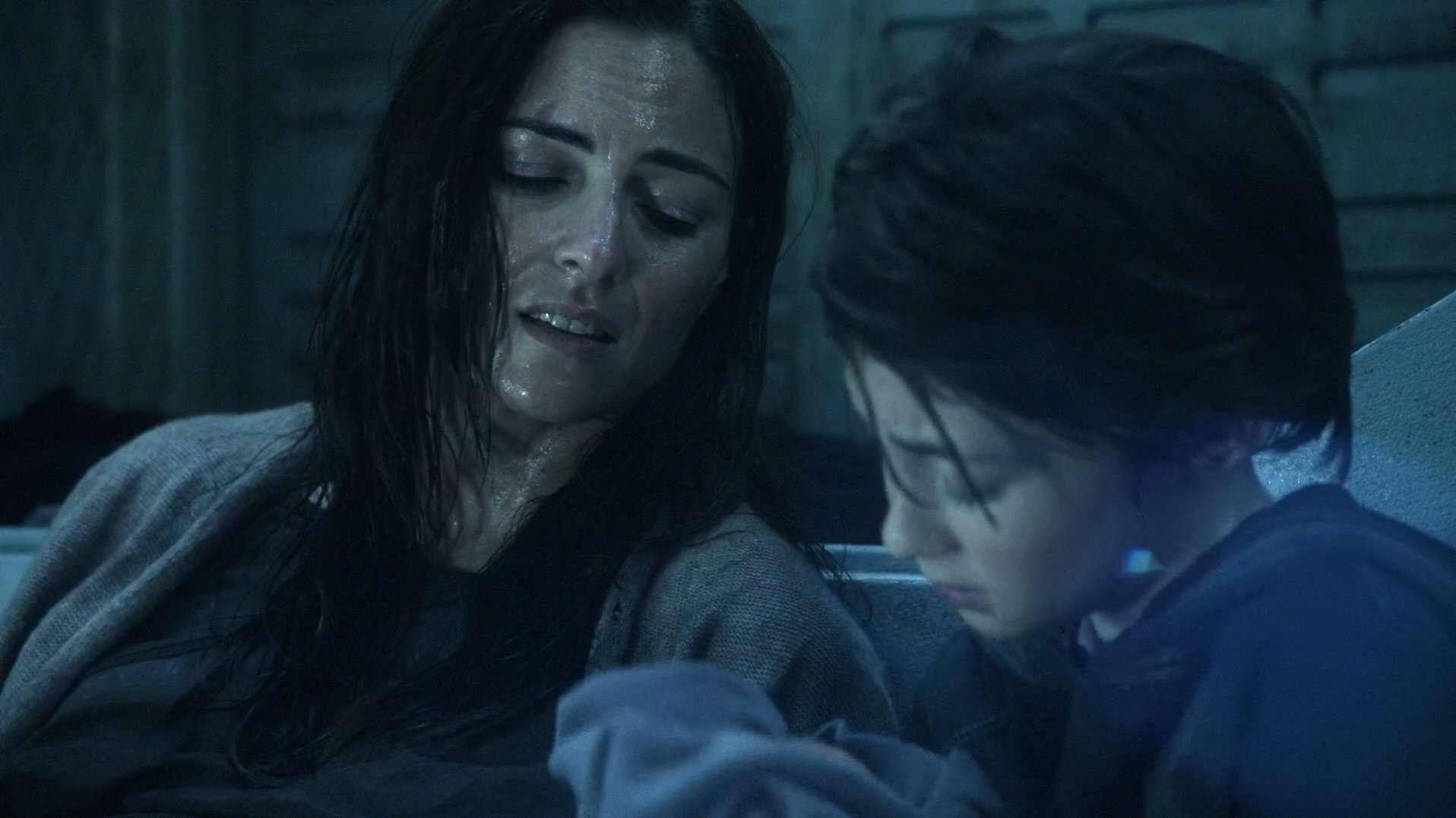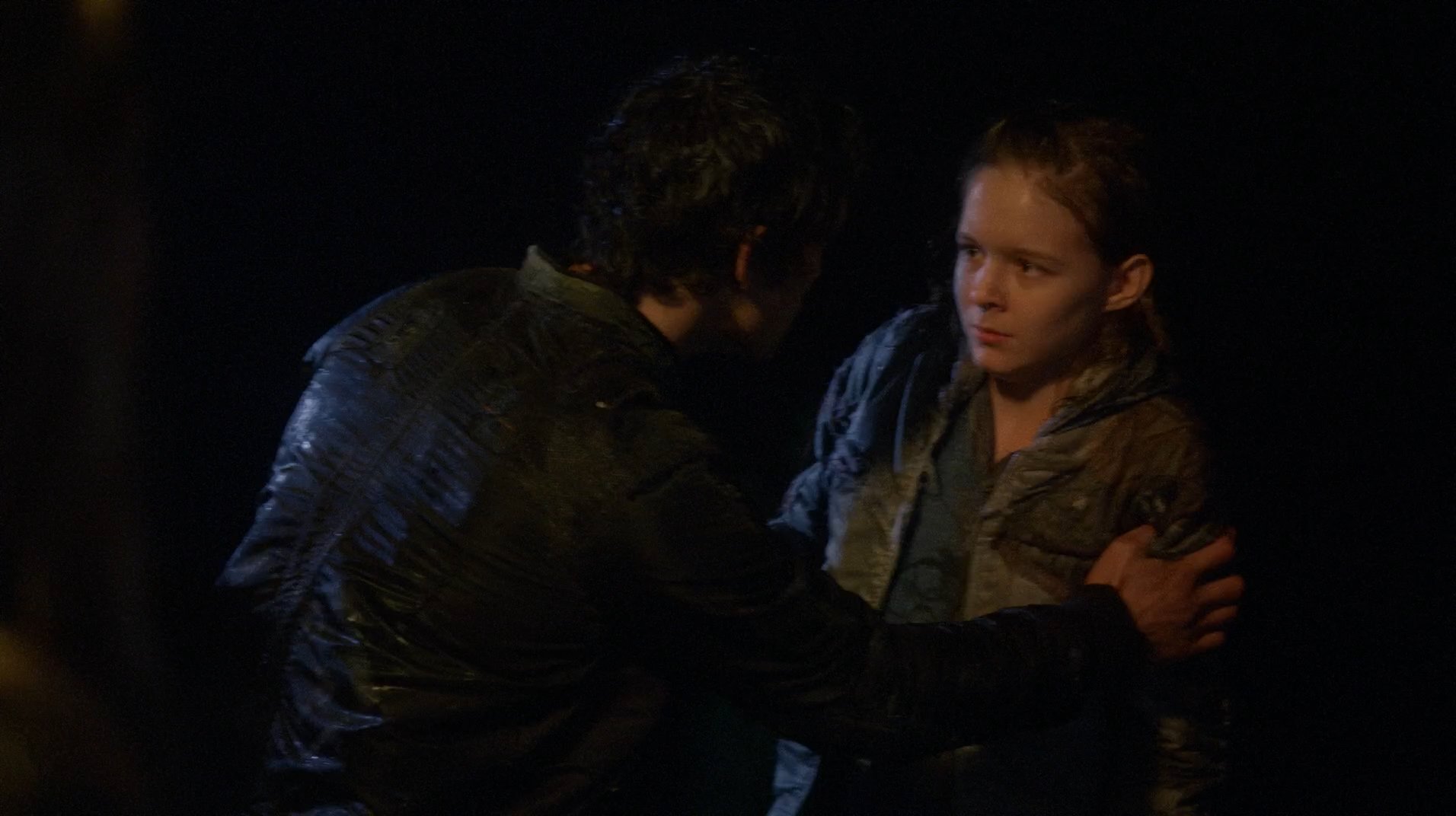
[This post contains spoilers for “The 100” through the most recent episode, 4×05.]
Listen up, creators: shoving women in the refrigerator to further the plots of male protagonists is gross. Not only is it gross, it’s lazy. The idea that men can’t experience emotional progression without first being triggered by the death of a woman is frankly misogynistic. Pushing a character past his limits doesn’t justify killing women, and using women’s deaths purely for the sake of that growth does a huge disservice to everyone involved.
Women are not plot devices. We are not toys. We are not obstacles. We are not emotional baggage. So stop killing us off to make men seem more complex and angsty. Seriously.
It’s old.
The “women in refrigerators” trope — a term coined and popularized by Gail Simone in 1999 — keeps popping up in all kinds of fictional media, from comic books to television shows. While Simone used the term for a website where she listed every female superheroine who’d ever been “either de-powered, raped, or cut up and stuck in the refrigerator”, usually to push forward the plot of the male protagonist, the term is now broadly used in fandom discussions to break down arcs where women are killed to further the plots of men.
On The 100, tons of characters are fridged for the plot progression of others. Most noticeably, Bellamy Blake — the male lead, played by Bob Morley — has an arc that’s dictated almost entirely by putting women in the refrigerator. He suffers the deaths of not one, but three women throughout the series, and is told that he’s lost a fourth only to later find out she actually survived.
Like I said, this trope is not only gross, but lazy. To see it used four times in a show with only three and a half seasons under its belt is really odd. And to see it used all four times for the same character is even odder. Typically, we see one woman — the woman of a man’s life — killed to give him “a new purpose”, usually a revenge or redemption arc.
While Bellamy certainly goes through both, the “woman of his life” isn’t ever actually killed. At least, she hasn’t been yet (though two episodes ago, it came close. We’ll come back to that).
When we meet Bellamy in the pilot, we learn that he isn’t supposed to be on the dropship that’s carried the hundred young, delinquent prisoners of the Ark to Earth in order to find out if it’s still inhabitable. He’s older (though his age is never explicitly mentioned, he seems to be 5-6 years older than his sister Octavia, which puts him at 21 or 22), he’s dressed in a guardsman uniform that clearly doesn’t belong to him, and he’s clearly done something really illegal to get on the dropship.
Through the course of the first few episodes, we discover that Bellamy shot the Chancellor at the behest of a guardsman on the Ark in exchange for a spot on the dropship. Why? To follow his little sister, Octavia, to the Ground.
Octavia is Bellamy’s whole world. Every decision he makes is about her, either directly or indirectly, and he’s desperate to keep himself and his sister safe no matter what else happens.
So, what about the other three women I mentioned? Well, they each die because of decisions Bellamy makes about his sister. Each death alters his life significantly.
Aurora

When Bellamy’s little sister is born, one of the first things his mother says to him — after he’s allowed to name her — is that she’s his sister, and she’s his responsibility. It’s a phrase Bellamy repeats throughout the show (especially in season one), and it’s something he takes very seriously.
Because of the strict population laws on the Ark, Bellamy isn’t supposed to have a sister at all. Couples can be approved for one child each on the Ark, in order to continue the survival of the human race without expending too many finite resources, including oxygen.
In flashbacks in episode 1×06, “His Sister’s Keeper”, we discover that Aurora Blake, Bellamy’s mom, is no longer with his father. We don’t know Bellamy’s father, nor do we know Octavia’s. Aurora’s life is shown as that of a single mother in poverty. Desperate to be able to take care of her family, she performs sexual favors on one of the guardsman to keep ahead of surprise inspections (to keep Octavia safe) and to help Bellamy become a guard, which will give him a better life.
Octavia, because she isn’t supposed to exist, lives mostly under the floorboards. She’s a prisoner from birth, because her mom will be “floated” (literally shot into space, a horrible death sentence issued to anyone over the age of 18 who commits a crime on the Ark) if she tells anyone she’s pregnant a second time.
Bellamy plays with Octavia and takes care of her, but any time there’s any possibility of an inspection from the guards, back under the floorboards she goes. The dynamic between Bellamy and Octavia is one that’s riddled with terror and sadness, but also a devoted sibling love that’s underscored by how desperately he wants her to be happy.
He goes so far as to sneak her out of their quarters when he’s in training to become a guardsman so that she can attend a masquerade ball on the ship, assuming the masks will hide her identity and keep her safe. The night backfires spectacularly when a solar flare alert creates chaos. Bellamy instructs his sister to run home and hide, but she doesn’t remember how to get there; the two of them attract attention from a guard and then everything goes south.
Octavia is arrested and locked up in the Sky Box with others who’ve committed crimes before the age of majority. Aurora is floated. And Bellamy, once a promising young cadet, is reduced to the status of a janitor with no family at all.
Bellamy blames himself for getting his mom floated and his sister locked up, because it was his decision to take her out of the family quarters. Aurora’s death completely alters Bellamy’s world, not only because he begins the chain of events that lead to it. Without his family, he’s left alone on the Ark to stew in his own misery, knowing that his sister is even worse off in the Sky Box than she was at home under the floorboards. Although Octavia isn’t dead, it’s as if she and her mother have both been shoved in the proverbial refrigerator. Bellamy loses them both in one fell swoop, and he doesn’t see Octavia again until he sneaks onto the dropship.
Octavia’s imprisonment becomes much more literal when she’s taken from Bellamy, and it’s something she expresses a lot of resentment about. She continuously tells people that she behaves the way she does because she’s been locked up her whole life, but several characters point out that if Bellamy hadn’t loved her so much, she would have been much worse off.
Realistically, if he had never taken her to the masquerade, they both would have died on the Ark. By ruining his entire family, Bellamy actually saved himself and his sister. It’s an odd usage of the “women in the refrigerator” trope because, arguably, Aurora’s death and Octavia’s imprisonment irrevocably alter Bellamy, but not necessarily for the worse (although the devastation is real). He learns that his best intentions are not always rewarded and that even when he thinks he’s acting on behalf of his sister, his decisions are not always as solid as he wants them to be.
Charlotte

Charlotte is the second woman whose death significantly alters the course of Bellamy’s future. One of the youngest delinquents sent to Earth on the drop ship, twelve year-old Charlotte gets Bellamy’s attention when he nearly beheads her while hunting boar in the woods. He takes her under his wing because he’s a perpetual big brother, regardless of how recklessly he tries to lead the hundred once they’re on the ground.
When Charlotte and Bellamy end up trapped in a cave together during what appears to be a radiation storm, he wakes her from a nightmare and tells her, “Fears are fears. Slay your demons when you’re awake, and they won’t be there to get you when you sleep.” Prior to this, he gave her a small knife to protect herself against the dangers of living on Earth. He tells her now that when she’s afraid, she should hold the knife and say out loud, “Screw you. I’m not afraid.”
We hear echoes of the sentiment from Octavia in other scenes, which suggests that it isn’t the first time Bellamy has told a young girl to “slay her demons” by gathering her strength and telling them she’s not afraid. Once again, he’s using his experiences with Octavia to drive his experiences with someone else. In taking Charlotte under his wing, he’s giving her a glimpse of the same treatment his little sister has gotten from him her whole life.
Charlotte takes Bellamy’s words too seriously; she takes the knife he gave her and uses it to kill Wells Jaha, one of the hundred who also happens to be the Chancellor’s son. She tells him she can’t stand to look at him because she just sees his father, and her floated parents, and she cuts off his fingers before stabbing him in the neck.
Once it’s discovered that a delinquent killed Wells and not a grounder, a witch hunt occurs to track down the one that did it. It’s assumed to be Murphy, since the knife Bellamy gave Charlotte belonged to Murphy first, and the whole camp participates in literally stringing Murphy up as punishment for Wells’ death. Then Charlotte confesses, and Bellamy and Clarke scramble to protect her in total contrast to how Bellamy treated Murphy.
The episode gets muddy after that, with everyone trying to either protect Charlotte (Clarke, Bellamy and Finn), or harm her (Murphy and his cohorts), all while Charlotte is called a murderer and insists that she shouldn’t be protected, because she did kill Wells, and she deserves to be punished. The whole situation culminates in Charlotte literally jumping to her death after Bellamy carries her through the woods against her will, desperate to save her, while she calls out to Murphy to make it easier for him to find her and kill her.
His treatment of Charlotte directly mirrors his treatment of Octavia in that he tries to protect her and help her the same way he does his little sister. Once again, Bellamy’s main function for existing — taking care of Octavia — is reflected in the way he interacts with Charlotte. As long as Octavia isn’t harmed, Bellamy will do whatever the delinquents want. But since Charlotte is a pseudo-Octavia, that can’t happen in this case.
Charlotte’s death and the events leading up to it mark several changes in Bellamy. First and foremost, he figures out that even though he may see his little sister in every young girl he encounters, that doesn’t mean they see him as a big brother. It doesn’t mean that they want to be saved, or even that his attempts at saving them will be received the right way. Once again, Bellamy’s best intentions end up getting someone killed.
Furthermore, Charlotte’s death marks a change in how Bellamy attempts to lead. Through all of his posturing and motivational speeches, he ultimately tries to lead by doing whatever the delinquents want, no matter how destructive they may be. Stringing up Murphy when he’s falsely accused of killing Wells is what the people want, so Bellamy gives it to them. But when a twelve year-old girl confesses that she’s the actual killer, Bellamy can’t treat her the same, and the delinquents can’t either.
Charlotte’s death adds a second woman to Bellamy Blake’s refrigerator, steering him away from violent pseudo-anarchy to a more deliberate attempt at leading and doing Good, not just “whatever the hell he wants”.
Gina

Gina Martin is, unfortunately, one of the most obvious plot devices in this series (but she does have a last name, which is more than can be said for many women-as-plot-devices). She’s introduced in episode 3×01, when the series has jumped ahead three months after the events of the season two finale. She’s introduced to us as someone who came down with the Ark, though we don’t know anything else about her. She apparently bartends in the camp that’s been established and she’s apparently dating Bellamy.
In her first scene, Gina gifts Bellamy a book and he kisses her goodbye before going out in a rover with core characters we already know and love, one of whom (Raven) teases Bellamy that Gina isn’t good enough for him.
It’s obvious from that moment that Gina is going to die.
Aurora’s death preceded the actual show and Charlotte’s death impacted all of the delinquents, but Gina’s character is written into the series specifically to be an emotional turning point for Bellamy. We barely see her in the three episodes she exists as a character; she has a total of less than ten scenes before she’s stabbed by an Ice Nation assassin while she’s trying to access launch codes for missiles inside Mt. Weather.
Her death is among three dozen others that get piled on top of the several hundred deaths Bellamy was partially responsible for at the end of season two — deaths he caused to save his sister from harm. But, because Gina is Bellamy’s love interest, her death is meant to carry more meaning. It’s meant to be the catalyst for his behavior through the rest of season three, when he essentially regresses back to being a grounder-hating, gun-loving leader like he was in season one.
That makes three women in Bellamy Blake’s refrigerator, though the audience didn’t even have enough time to grow attached to Gina before she died. It makes the emotional ramifications of her death harder to justify as reasoning for why Bellamy so aggressively goes after the grounders after a full season of trying to work with them (though there’s another explanation for this involving Clarke, which I won’t go into here), simply because the audience doesn’t know her. All of the development for her relationship with Bellamy happened off screen, between seasons, and we were thrown into their relationship as if it was something we should have already been familiar with, even though she came out of literally nowhere.
Possibly because Gina’s death follows the ”women in the refrigerator” trope a little more traditionally than Aurora’s or Charlotte’s, it’s also the laziest and most obvious usage of the plot device in the writing. Bellamy doesn’t really learn anything from her death; the writing just shoehorns him into behaving arguably out of character because of it, backtracking on two seasons worth of progress.
Octavia

Octavia Blake isn’t actually dead. Though she fell from a cliff after a bloody battle in episode 4×04, she was found and rescued by her horse, then carried back to camp by Ilian in episode 4×05. However, as I’ve said throughout this piece, Octavia is Bellamy’s main reason for living. He dedicates his whole life to not only keeping her safe, but making her feel loved, making sure she has a life even when she’s trapped in the floorboards on the Ark.
His overprotective, big brotherness is something that’s obvious to everyone, especially his enemies. He opts to irradiate a mountain full of people, including allies and children, because the scientists inside threaten his sister’s safety.
So in season four, when Octavia apparently dies in battle while Bellamy is held captive by the Ice Nation people she’s fighting, Bellamy’s will to live seems to disappear. When he’s told about her death (in his prison cell), his reaction is gut-wrenching and horrible. In the next episode, when he and Marcus Kane are dragged out before their people as bargaining chips, his eyes are tearful and his face is blank. If Octavia is dead, it doesn’t matter what happens to him. He doesn’t care anymore.
The audience, at this point, knows that Octavia survived. Bellamy doesn’t. He figures it out relatively fast, though, which is almost a disappointment — though his entire demeanor changes when he realizes that someone warned his people about the Ice Nation’s plans and that moment is really heartfelt, it’s also lacking. There’s no real stretch of time where Bellamy believes Octavia is dead and has to figure out how to keep going (or not) in spite of that. He doesn’t even see her alive until the end of the episode, well after he’s deduced that she must be. No one tells him not to get his hopes up. No one reminds him that even though she made it back to camp, that doesn’t mean she hasn’t since died from her injuries.
No one questions that Octavia is alive when Bellamy says it, which— if they’re trying to get him to fight, then that makes a lot of sense. Believing his sister is alive pushes him forward; had he not realized she survived, he might have just given into death. We don’t know.
Technically, Octavia doesn’t count as a refrigerated woman because she survives, but being told she’s dead clearly has implications for Bellamy. Aside from Clarke, she’s the only woman with whom we see Bellamy have any real, lasting emotional connection. She’s his baby sister. He named her. His sister, his responsibility.
So why is it, that after four seasons of killing off women to move along Bellamy’s plot arc, the writers opted not to fully explore the ramifications of killing Octavia? The women in refrigerators trope is disturbing and overused, especially in this instance — killing one woman to further the plot of a male protagonist is bad, but killing three and telling him that they’ve killed a fourth is awful. It’s just bizarre that the writers wouldn’t choose to pursue the Octavia death for longer, even if he does eventually find out she’s survived.
Given that all of Bellamy’s decisions are made with Octavia in mind, killing her as a way of either pushing him into a death sequence himself or making him do something really drastic in an attempt to avenge her death is an obvious step forward. Since the writers opted not to actually kill her (thankfully), having either of these things happen in the wake of Bellamy being told she’s dead could have actually been somewhat interesting. Seeing how she dealt with whatever he did or didn’t do would have been really cool.
We’ve spent almost four seasons watching women die and watching Bellamy grapple with those deaths, but the woman of his life — Octavia — is given a death sequence that’s recanted immediately, and even the emotional ramifications of Bellamy being told she’s dead are recanted within a handful of scenes. It would have been interesting to see how Octavia dealt with Bellamy thinking she was dead, once they were reunited, or even just seeing the whole series of events played out with more nuance. The Blake siblings have been at odds since the series began, though moreso since Lincoln’s death in season three, and I understand the motivation to give Octavia a brush with death in order for her to patch things up with Bellamy.
But I’m tired of watching women he cares about be shoved in the refrigerator so he can seemingly learn the same lessons over and over: life is unfair, good intentions don’t count, and no matter how hard you try to hold onto the ones you hold dear, you can’t guarantee their safety (or your own). Honestly, at this point, whenever Bellamy so much as shares a significant look with a woman, I expect her to die. That’s not okay. It reduces his character and the growth he’s undergone significantly. It also makes me fear for all of the women he gets close to, including the main protagonist, Clarke.
If the writers of The 100 were so determined to use this harmful trope, they could have done it much more effectively — or subverted it better than they did with Octavia’s near-death and the reveal that she made it out alive. If there are supposed to be emotional ramifications, let them happen. Otherwise, this trope is just bandied about even more lazily than usual.
Bellamy Blake deserves better. So do all of the women in his refrigerator.




2 thoughts on “100 Thoughts on The 100: Bellamy Blake’s Refrigerator Full of Women”